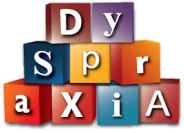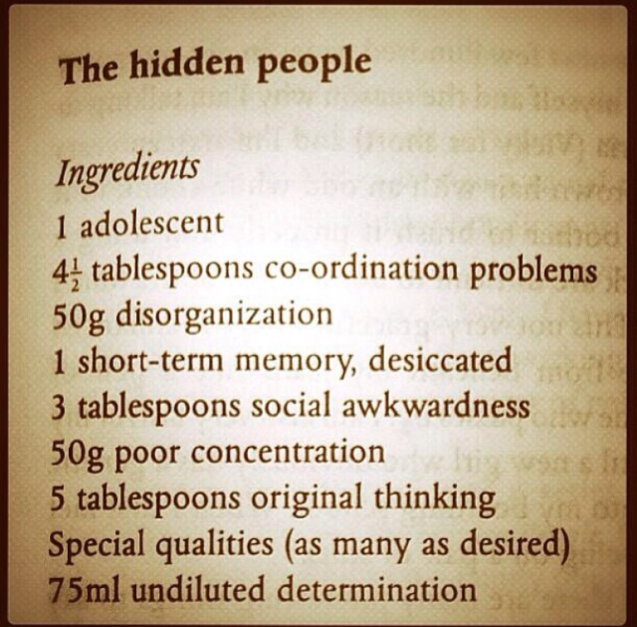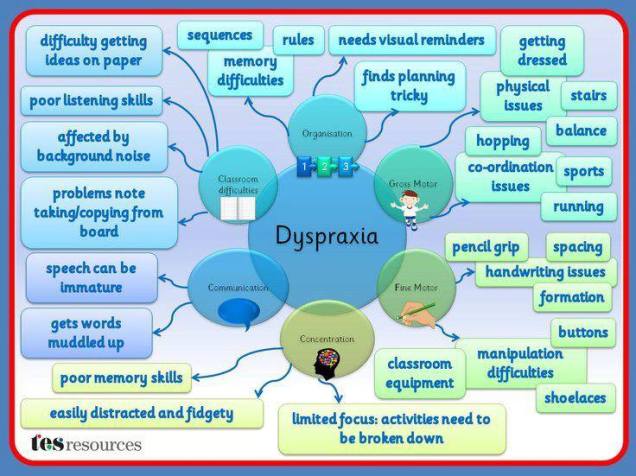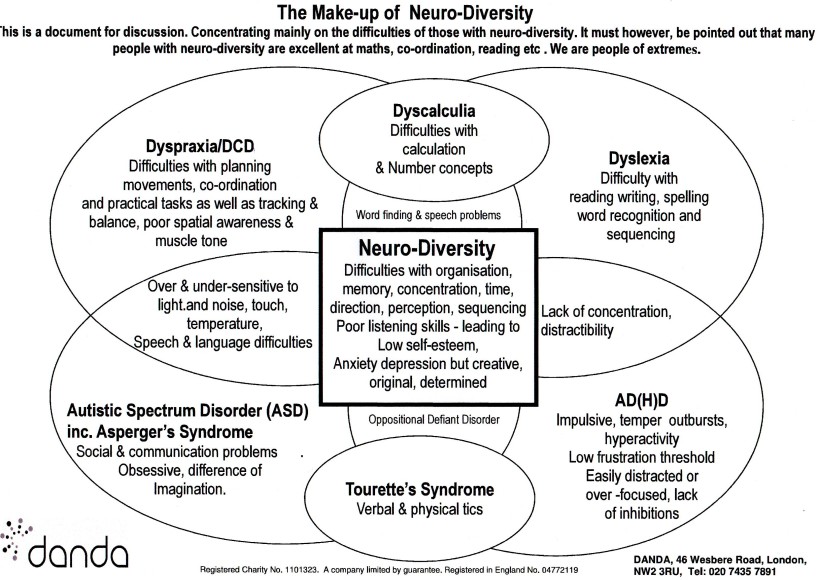It’s Dyspraxia awareness week this week!! (12th – 18th October)
When I tell people I have dyspraxia, 99% of the time the response I’ll get is a blank look on their face along with: “What’s that?”
So that’s why I’m posting this, to try to raise some, even if it’s only a little, awareness of dyspraxia.
I’ll start off with saying that I don’t mean dyslexia…people often get confused as they both sound similar and due to the fact that there is a lot more awareness of dyslexia, people think that that’s what was meant.
Dyspraxia affects a range of things, causing difficulties with:
- balance – tripping over thin air is my talent!
- coordination – don’t ever ask me to pat my head and rub my belly at the same time…
- fine motor skills – using cutlery can be more difficult, and watching me eat spaghetti or noodles can be entertaining…
- gross motor skills – my attempts at throwing and catching can be funny to watch…like the times when I’m standing right next to the bin, throw something in it, and still manage to miss…
- spatial awareness – I’m one of those people who crosses the road after missing about 5 opportunities to go…it’s even more difficult when you can’t judge the space of how near the cars are!
- social situations – wanted to focus a bit more on this point as it’s something I think people often don’t understand about people with dyspraxia, well in my experience anyway. I often take things literally. Although it can be annoying at times, a lot of the time it just creates funny conversations where I have completely misunderstood something. I have difficulty keeping eye contact sometimes…I’ll just look at the tree in the background while talking to you, I am listening though… I have difficulties in large social groups, and find it easier in smaller groups – the amount of times I’ve been in a big group of people and they’ve said “Natalie, you’re so quiet!” Firstly, they clearly haven’t seen me in small groups of people where I don’t really shut up…Secondly, it’s hard to explain, I just find that bigger groups are more difficult with so many people saying different things, by the time my brain has caught up with something to say they’re talking about a completely different topic!
- short term memory – what was I going to write again…? (although on the plus side it is said that dyspraxics often have a very good long term memory!)
- speech – difficulty pronouncing certain words, getting words muddled up, difficulty controlling tone and volume of speech – often I’ll be in a really quiet place and accidentally start speaking really loudly without even realising it until someone gives me a hint…funny but embarrassing sometimes!
- emotions – getting easily frustrated and stressed, especially with A Levels…
- concentration – I zone out really easily…I also find it difficult, well almost impossible to concentrate when there is background noise!
- organisation – I find I literally have to write everything down, otherwise I will completely forget!
- adapting to change in routines – this is something that’s difficult to explain to someone who’s not experienced it with dyspraxia or other related conditions such as autism. I just don’t like it when things change and get really frustrated and stressed when they do…I also find that when I do things in a different order to my normal routine I’ll end up missing something out, I’ve even forgotten to have breakfast before when I don’t have it first thing in the morning like I normally do!
- telling left and right apart – I know which is my right hand and which is my left hand, but if someone says to look one direction, I’ll sometimes look the other direction and if I’m giving directions to someone I’ll have to think for a while after imagining which way and saying whether it’s left or right
- sense of direction – linking to my previous point, my own sense of direction is very bad! I’ve managed to take the wrong turning to get out of Stevenage train station towards the leisure park before…
- over sensitivity to noise, light, touch, temperature – I quite often shiver when it’s not even really that cold, but to me it is! Also a strong disliking of certain textures, as a lot of my friends know I absolutely hate grapes! That is because I find the texture of them absolutely disgusting!
This is of course not the same for everyone with dyspraxia as everyone is unique, and not everyone will be affected by all of the symptoms. At the same time there are probably some parts that I’ve missed out, but I’ve tried to include as much as I can in this description to raise awareness! The Dyspraxia Foundation has a great website which gives a lot more detail about dyspraxia.
Dyspraxia does overlap with other conditions, for example it has quite a lot of similarities with autism, such as the difficulties with social situations and adapting to changes in routines.
This diagram is quite useful in showing some of the ways that a few conditions overlap with each other:
Despite the difficulties those of us with dyspraxia may face, it doesn’t necessarily mean that we can’t achieve the same things as others, even if it takes us longer to get there and we have to do it in our own unique way.
If you are still reading this, thank you so much!!! Hopefully this will have helped to explain what dyspraxia is if you didn’t know already 🙂
Natalie 🙂




![176836722838672450_OZ2T3rAU_c[1]](https://theblogwithonepost.files.wordpress.com/2014/10/176836722838672450_oz2t3rau_c1.jpg?w=374&h=555)
I hope you don’t mind but I am going to print this out and give it to my kids school as it really covers everything so well.
Thank you
LikeLiked by 1 person
Thank you so much for reading my blog and for your comment!! No of course I don’t mind, it’s great to know that you’ve found it useful 🙂
LikeLike
Reblogged this on Pictures from Around Me and commented:
Off my normal topics but I wanted to share this as my son has dyspraxia and this is a great summary of it.
LikeLike
Thank you so much!!! 🙂
LikeLiked by 1 person
Hi Natalie this is Javelin Joes Dad!
You have written a very fascinating and informative blog.
I now know all I need about Dyspraxia and love your final diagram of getting from A – B. Well done you 🙂
Hope to see you soon at athletics (once Joe’s leg is better).
Chris 👍
LikeLike
Hi Chris, thank you!!! Yeah I really liked the diagram too, so thought I would use it in my blog 🙂 yep! Hope Joe’s leg gets better soon! Thanks again 🙂
LikeLike
This is really awesome. I find dyspraxia quite difficult to explain to people but this really helps.
LikeLike
Thank you! I’m glad it helps 🙂 I usually find dyspraxia difficult to explain to people too, I think it’s more difficult when you’re put on the spot, so I found it easier to write it in a blog where I could spend more time on it 🙂
LikeLike
I also suffer from dyspraxia (and also dyscalculia ) people always think I mean dyslexia when I tell them. Great summary of dyspraxia, hole in one.
LikeLike
Yeah it’s so frustrating when that happens isn’t it? Thank you so much! 🙂
LikeLike
I saw this on Facebook this week and sent it to my 26 year old son who suffers from dyspraxia. He’s fine with numbers but not at anything involving handwriting; telling stories with a start, a middle and an end; concentration and short term memory. I also sent it to his younger siblings so that can have a better understanding of his symptoms. Thank you.
LikeLike
No problem, thank you so much for your comment!
LikeLike
Brilliant as always my daughter has dyspraxia .v hard on her but she’s learning only now to live with it and she’s 16 xx
LikeLike
Thanks Sharon! 🙂
LikeLike
Hello! I was just curious as to what doctor finally diagnosed you with dyspraxia? All my daughter’s “quirks” point to this, and we’ve seen several doctors, only one has briefly mentioned this and that was a jotted down note. Insurance has denied neuro-psych testing. Going for ADP testing in October. Trying to go another route for the neuro testing in September. I just want to get the poor girl help in school, like an IEP!!
LikeLike
Sorry for the very late reply!! I initially saw a paediatrician, as I was going to the hospital for regular appointments anyway due to being born prematurely. It was then that it was noticed that I was late in reaching developmental milestones, so I saw other specialists such as physiotherapists. I think various people had an input, but I think it was the paediatrician who diagnosed me (although I was only 3 years old so I can’t remember). Hope you’ve managed to get some more support since your comment!
LikeLike
I am so happy that I found your blog. My youngest was diagnosed with dysgraphia last year, but I suspect that it is actually dyspraxia. The psychologist and school didn’t tell me or discuss the diagnosis with me at all, I read it in the report. In fact, I was told that my youngest is behaving like a baby and really needs a good spanking. I find it really difficult to get information about it and even more about how to find tools to make it easier on not only my youngest, but also my oldest which I suspect has dysgraphia too. I am going to read through your blog when time permits so I can get all the info that I so desperately need. We have an appointment at a psychiatrist, but it is only in two months time and in the mean time I need to find out how to make things a bit easier for them. Our schools don’t offer the same type of tools to help like in other countries and it is really sad. My oldest, 15, failed all his subjects this school term because he got penalized for his bad handwriting, spelling and because it is just so much information to remember and he does not know how to study in a way that would help. Thank you so much for sharing this with everyone, it means so much to me.
LikeLike
Thank you for your comment, glad to hear you’ve found my blog helpful. Sorry to hear you’ve been through such a difficult time with trying to get support for your son though – that sounds really hard, I hope the appointment goes well for you all
LikeLike